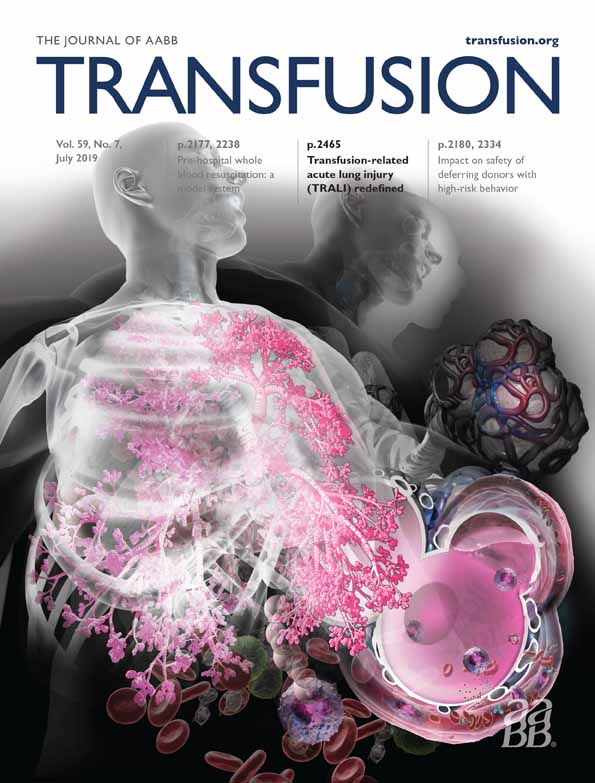An assessment of the risk, cost-effectiveness, and perceived benefits of anti-parvovirus B19 tested blood products
Abstract
BACKGROUND
Parvovirus B19 (B19V) can cause severe anemia, hydrops foetalis, and even death in vulnerable patients. To prevent transfusion-transmitted B19V infection of at-risk patients, B19V antibody screening of blood donors was implemented. The cost-effectiveness of this intervention is unclear, as the likelihood of transmission through blood and subsequent complications for recipients are unknown. This study estimates the cost-effectiveness of anti-B19V donor screening in the Netherlands.
STUDY DESIGN AND METHODS
The estimates needed for the cost-effectiveness model were: the occurrence of B19V in Dutch blood donors, the number of anti-B19V tested products required by hospitals, the likelihood of morbidity and mortality given B19V infection, treatment costs, and screening costs. These estimates were obtained from literature and observational data. When data were unavailable, structured expert judgment elicitation and statistical modeling were applied.
RESULTS
The costs of preventing one transfusion transmitted B19V infection are estimated at €68,942 (€42,045 – €102,080). On average, 1.25 cases of morbidity and 0.12 cases of mortality are prevented annually. Although the perceived risk of transfusion transmitted B19V infection was low, half of the treating physicians favored anti-B19V screening.
CONCLUSION
The estimated mortality and morbidity caused by B19V infection was low in the risk groups. The cost-effectiveness ratio is similar to other blood safety screening measures. No guidance exists to evaluate the acceptability of this ratio. The explicit overview of costs and effects may further guide the discussion of the desirability of B19V safe blood products.
CONFLICT OF INTEREST
The authors have disclosed no conflict of interest.




